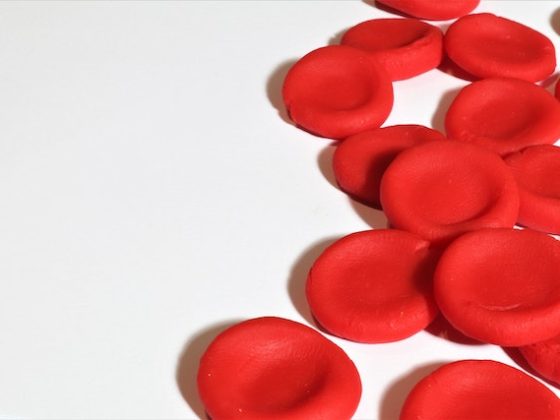Hey there! This post may contain affiliate links. As an Amazon Associate, I earn a teensy commission from qualifying purchases when you buy through these links (at no additional cost to you). For more info, please check the full disclaimer.
Syphilis is a highly contagious STD that transfers through sexual contact with an infected individual. Although syphilis is a curable disease, it may be painful and cause serious health conditions. According to the CDC, 40% of untreated symptoms of syphilis in women may lead to fetal death in pregnancy.
Before the discovery of penicillin, syphilis was largely incurable and affected several women. Due to ineffective treatment options, it would lead to arthritis, blindness, brain damage, and death.
But thankfully, after the discovery of penicillin, the cases started decreasing significantly. Syphilis infections hit a historic low between 2000 and 2001.
But even though syphilis is curable and significantly decreasing, 1 out of every 10 syphilis cases is a woman, according to the U.S. Department of Health and Human Services.
Therefore it is critically important to spread awareness about the symptoms of syphilis in females, especially teenagers.
Today, we will explore what syphilis is, the symptoms of syphilis in women and how to tackle this disease.
What is Syphilis?
Syphilis is a bacterial infection caused by the bacteria Treponema pallidum. It is a sexually-transmitted disease that gets transferred from one infected person to another during any sexual encounter.
#stds #sexualhealth #syphilis #womenshealth
What Causes Syphilis?
You can contract syphilis through unprotected oral or anal sex with an infected individual. It might also spread through cuts or open wounds that come in contact with a syphilis sore.
You risk passing the bacteria to your child during childbirth if you’re infected and pregnant.
Other factors that might contribute to high chances of syphilis infection in females are;
- Multiple sex partners
- Symptoms of HIV
- Having unprotected sex
However, unlike common misconception, syphilis does not spread through public pools, toilets, door knobs, bath tubs, sharing clothes, etc.
Read More: 8 Tips For Feminine Hygiene In Summer
What are the Symptoms of Syphilis in Women?
Syphilis spreads in four stages: early, secondary, latent, and tertiary. Each stage has distinct symptoms of syphilis in females, and knowing about them early on can help make an accurate diagnosis leading to appropriate treatment and quick recovery.
Let’s discuss the symptoms of syphilis infection that most women experience.
Primary Phase:
1. Chancre sores on mouth and genitals
A sore on the mouth, genital, or anus is among the trademark symptoms of syphilis in women. It appears in the primary stage of syphilis and is characterized by a painless ulcer on, in, or around any of the following body parts:
- Vagina
- Anus
- Mouth
- Lips
The sore is called a chancre and is usually small, round, firm, single, or multiple. These can occur between 10 to 90 days of exposure and may heal within 3 to 6 weeks without any treatment. Also, a chancre is a hub of bacteria and is highly contagious.
Since these sores are tiny and painless, you may not even notice them. But getting treatment is necessary even if they disappear on their own to avoid the infection from progressing into the next, more severe stage.

2. Rosy skin rash
A few weeks after the chancres heal, you may notice a rash on one of your body parts. The rosy rash usually begins on the trunk and later spreads to the entire body. You may experience reddish and rough palms of your hands and soles of your feet.
The rash usually doesn’t itch, and you may barely notice it. And although it subsides within a few weeks, there is a chance of it repeatedly appearing for a year without treatment.
3. Persistent low-grade fever
A fever could be a sign of anything, but if you are experiencing sores, rosy rash, and developing a fever, it is time to seek a medical opinion. Your body temperature may spike up to 100 degrees Fahrenheit, which may be low-grade, but along with other symptoms of syphilis in women, it can be alarming.
4. Swollen lymph nodes
Like a fever, swollen lymph nodes are also our body’s way of shouting “INTRUDER!”
If you notice a lump in front of your neck, armpit, or several body parts with lymph nodes, it may signify syphilis.
5. Rapid hair loss
Another condition related to syphilis in women is syphilitic alopecia. Hair loss is fairly common and not a definitive symptom of syphilis in females. But if you notice bald spots on your head and other signs of syphilis, you should seek medical attention immediately. Hairloss due to syphilis will stop once you receive treatment for the disease.
Read More: Iron Deficiency Hair Loss: Causes, Signs, Prevention
6. Sudden weight loss
Losing extra pounds when your body is battling an infection is pretty common and mostly goes unnoticed.
Weight loss due to syphilis is insignificant and usually only comes to light after assessing other preliminary signs. If you notice any sores, rashes, fever along with rapid weight loss, you may have contracted syphilis.
⚠️Sudden weight loss
⚠️Rapid hair fall
⚠️Hearing and vision issues
⚠️Constant low fever
⚠️Swelling in lymph nodes
Then you might have syphilis! Check out more symptoms in our blog post.
#stds #sexualhealth #syphilis #womenshealth
Secondary Phase
7. Common cold-like symptoms
The secondary stage of syphilis can induce cold-like symptoms that may or may not go away with treatment. These symptoms include fatigue, muscle ache, sore throat, headache, and all the primary stage symptoms.
Tertiary Phase
8. Neurological problems
When the symptoms of syphilis in women remain untreated for a long time and ultimately spread to the neurological system, they may affect the brain, nerves, and spinal cord, leading to neurosyphilis. It is characterized by severe headaches, neck stiffness, dementia, muscle weakness, numbness, and paralysis.
9. Ear diseases
Otosyphilis occurs when the bacterial infection spreads to the ear. It is characterized by deafness, tinnitus (continuous ringing in your ear), and vertigo or dizziness. These symptoms will go away gradually after successful treatment of syphilis.
10. Critical eye issues
When syphilis reaches your eyes, you may develop symptoms of oculosyphilis, which include pain or redness in the eyes, deteriorating vision, and blindness. Take immediate medical intervention because these symptoms of syphilis in women are reversible but may leave long-lasting damage to your eyesight.
11. Small bumps called gummas
Complicated symptoms of syphilis in women include the development of small bumps containing dead fiber called gummas. These bumps can grow on the skin, internal organs, and bones and damage the tissues around them. In critical cases, they may affect your main organs such as the liver, heart, brain, eyes, or bones. If left untreated, the complications may eventually cause death.
12. Cardiovascular complications
As syphilis reaches the tertiary stage, it can severely affect a woman’s blood transport system. The cardiovascular complications include damage to heart valves, aneurysms, or inflammation of the artery called the aorta.
13. Meningitis attacks
Neurosyphilis complications in women may also lead to meningitis – the inflammation of the outermost layer of the brain and spinal cord. If not treated promptly, meningitis is a deadly condition that may be life-threatening. On the other hand, congenital syphilis (symptoms of syphilis in women passed on during birth) may lead to meningitis in babies.
How is Syphilis Diagnosed and Treated?

Luckily, this infection is curable.
Several antibiotics help subside and treat the symptoms of syphilis in females. Before treating, your healthcare provider will ensure you have contracted the infection through various laboratory tests and diagnostics, like;
- Blood tests
- Cerebrospinal fluid test (if your doctor suspects neurosyphilis)
- Darkfield microscopy of fluid taken from lymph nodes or skin sore
Next, the physician will prescribe the appropriate medication for treating your condition.
When undergoing treatment for syphilis, it is critical to get your partner tested and treated too. It limits the chances of the infection spreading to them and, eventually, getting reinfected.
Also, when undergoing the treatment for syphilis, watch out for signs of Jarisch-Herxheimer’s reaction.
#health #womenshealth #syphilis
It is an immune system reaction in syphilis patients, characterized by headaches, fever, chills, upset stomach, and sore joints. These signs usually subside within a day or two without any intervention.
How is Syphilis in Pregnant Women Treated?
Congenital syphilis is a condition in infants whose mothers pass the infection to them during pregnancy or childbirth.
Unfortunately, over 2,100 cases were registered in 2021 alone, per a CDC study. Pregnant women may undergo a desensitization process since doctors cannot administer penicillin without harming the fetus.
Read More: 19 Dangerous Pregnancy Infections
How to Prevent Syphilis in Women?
Although women are less prone to syphilis than men, symptoms of syphilis in females have been on the rise, with a 30.0% increase in 2018-2019, according to CDC.
Especially among sex workers from 32 countries that participated in a study about the rate of syphilis, an average of 10.8% tested positive for active syphilis.
Even though syphilis is curable, once the bacteria has caused damage to the organs, medication cannot completely reverse it.

Remember, some of the symptoms of syphilis in women are horrifying, so it is a good idea to take all the necessary preventions to avoid getting infected.
Here are a few practical tips to prevent syphilis:
- Use condoms and dental dams. Since syphilis is an STD and spreads through sexual oral or genital contact, this is your first shot at prevention.
- Get tested for syphilis regularly, especially if you have multiple sexual partners.
- Avoid intimate contact with anyone you know who has syphilis.
Similarly, here is how you should avoid spreading the disease if you have been infected:
- Inform your current and past partners and ask them to get tested and treated.
- Avoid sex until the infection has wholly regressed and you have no sores or other symptoms.
- Use condoms every time you have sex, even after the treatment.
Syphilis is Contagious, Don’t Take it Lightly!
Syphilis is scary because it spreads rapidly and infects several individuals. CDC reported 133,945 cases of syphilis in the year 2020, making it one of the most common STDs in the world.
On the bright side, modern medicine and advanced healthcare have made syphilis a conveniently curable disease.
But since the early symptoms of syphilis in women are often painless and insignificant, they can go unnoticed and easily make their way to other bodies. Therefore, it is essential to learn about the symptoms of syphilis in females to identify it and get timely treatment.
If you notice a sore near your genitals or your mouth, a rash, fever, or other symptoms of syphilis, seek medical attention urgently. You may visit your family physician or a nearby healthcare-providing institute that can guide you appropriately.
We hope you found this article helpful. Remember, staying cautious and safe is the best way to fight syphilis.
References
- https://www.plannedparenthood.org/learn/stds-hiv-safer-sex/syphilis/how-is-syphilis-prevented
- https://www.sciencedirect.com/science/article/abs/pii/S1068607X00000445
- https://www.ncbi.nlm.nih.gov/pmc/articles/PMC1779891/
- https://journals.lww.com/jaapa/fulltext/2019/05000/syphilis.11.aspx








